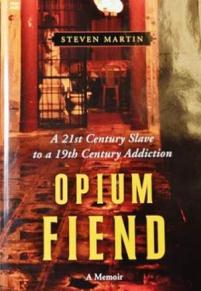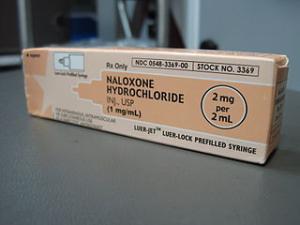Acting on a tip, DEA agents went on rural property without a warrant, set up surveillance cameras, and used the evidence obtained to get a search warrant and convict the property owners for growing marijuana. And a US district court judge said that was okay. Is it?
Opium -- boon, bane, or both? We review three recent books on various aspects of the poppy and its derivatives.
Apply for an internship at StoptheDrugWar.org and you could spend a semester fighting the good fight!
Bolivia has successfully rejoined the UN Single Convention on Narcotic Drugs with the reservation that the treaty's ban on coca leaf will not apply there.
MedicalMarijuana.ProCon.org, part of the ProCon.org family, is an in-depth web site presenting information and views from a variety of perspectives on the medical marijuana issue. The Chronicle is running a six-part series of info items from ProCon.org, of which this week's is the second.
A new poll finds that Hawaii is well-positioned to undertake a marijuana legalization campaign.
New state medical marijuana bills are starting to roll out as the legislative season gets underway, progress comes in Arizona, and San Diego's mayor steps up for medical marijuana.
The New Jersey legislature has taken a step toward passing a bill that would expand access to the anti-overdose drug naloxone. The bill now heads for a Senate floor vote, but awaits action in the House.
Your elderly wife dies of cancer at home with you at her side, and before her body is even cold, the cops are there demanding her pain pills. What do you do? A Utah man is suing the police who did it and the city they work for.
For the third time in recent months, a high profile report has called British drug laws a failure and recommended fundamental reforms.
Ten days into the new year, and we have our first drug war death of 2013. And another death that didn't make the list, but appears drug prohibition-related.
Corrupt cops are headed to prison in Honolulu, Chicago, and Bridgeport, Connecticut, and one in Houston will be joining them soon.
special to Drug War Chronicle by investigative journalist Clarence Walker, [email protected]
A case that began with reports of suspicious activity in northeast Wisconsin forest land last spring may be headed for the US Supreme Court. That's because a US district court judge ruled in the case last fall that it was okay for the DEA to enter the rural property without a warrant and install surveillance cameras that were used to help convict five members of a family on charges they were growing marijuana.

surveillance camera (shutterstock.com)
The ruling last October came in a
motion to suppress the evidence obtained by the warrantless video cameras. After that ruling, the defendants, five members of the
Magana family, pleaded guilty to possession with intent to distribute marijuana and now face up to life in prison and up to $10 million in fines. But as part of the plea deal, they retained their right to appeal the ruling.
And their attorneys say they are prepared to take the case all the way to the US Supreme Court.
In their motion, they had asked the court to suppress evidence because of the property's locked gate and "No Trespassing" sign. Since the properties were heavily wooded and posted with signs, the owners were entitled to an expectation of privacy, the attorneys say.
"After sentencing, the first round of appeals will go to the Seventh Circuit and if there's no favorable ruling there, the cases will be filed into the US Supreme Court," Wisconsin attorney Stephen Richards told the Chronicle last week.
"That one's action could be recorded on their own property even if the property is not within the
curtilage is contrary to society's concept of privacy," said Green Bay attorney
Breet Reetz, who represents Marco
Magana.
Curtilage is a term of legal art referring to the area of a property immediately surrounding a house or dwelling. Past Supreme Court jurisprudence, particularly
US v. Oliver, had held under the "open fields" doctrine that areas outside the
curtilage are not subject to the same Fourth Amendment protection as a home itself. "An individual may not legitimately demand privacy for activities conducted out of doors in fields, except in the area immediately surrounding the home…," the court held in Oliver. (Perhaps not coincidentally, Oliver was another marijuana cultivation case, in which Kentucky deputies walked a mile onto the property before spotting a marijuana field. Their search was upheld.)
It all began in rural
Marinette County last May, when a fishermen reported to local authorities that he had been run off the land by two men who told him "fishing is closed" and that he had observed trees cut down and power lines running across the property. Authorities investigated and found the property and two more adjacent properties were owned by members of the
Magana family, which had purchased them months earlier.
Authorities left it at that until the following month, when a logger reported that when he had gone to check on a timber stand at one of the properties, he stumbled over a marijuana cultivation operation with more than 30 plants in a 50' x 50' clearing. The DEA then was called in and entered the
Magana's properties without a warrant. Agents installed video cameras that eventually captured incriminating evidence of vehicles traveling in and out of the properties.
It wasn't until the DEA observed some of the men handling what believed to be marijuana did they go and request a warrant. A warrant was signed and the agents, accompanied by several local sheriff officers, executed the warrant and arrested the men at separate addresses near Green Bay.
The bust was big news in
Marinette County.
"You've got thousands of plants, and as healthy as they look, this is a big operation," Sheriff Jerry Suave told local reporters at the time. The grow is probably "the largest I've seen," he added.
Before trial, set for the fall, counsel for the
Maganas filed a
motion to suppress the evidence, informing the court that videos from the surveillance camera showed dates that indicated that the camera had been running for 79 consecutive hours before DEA agent Steven Curran obtained a search warrant for the property.
"It is undisputed that the government trespassed without a warrant upon private property with visible 'No Trespassing' signs" posted,"
Reetz wrote in the motion, noting that the camera had operated from July 12 to July 15, but the warrant wasn't issued until July 17. Nor were there any "exigent circumstances" that would have allowed officers to enter the property without a warrant.
Federal prosecutors were
ready with a response.
"Officers entering an 'open field' is not an area enumerated as protected under the Fourth Amendment," countered Assistant US Attorney for Eastern Wisconsin James
Santelle. "'Open fields,' woods, and private lands are not 'persons, houses, papers, and effects' protected under the Constitution."
That was good enough for Eastern Wisconsin US District Court Chief Judge William
Griesbach, who dismissed the defense motion and ruled that it was legal for the DEA to go onto private property without a warrant to install multiple covert digital cameras, and to use the evidence they obtain that way to obtains warrants and in court. Citing US v. Oliver,
Griesbach held that the rural properties were
curtilage and not protected by the Fourth Amendment.
But the Maganas' attorneys and other legal experts argue that even though "open fields" are not considered curtilage, if "No Trespassing" or "Private Property" signs are posted on the land, the property owner should still be entitled to an expectation of privacy under the law. And they are willing to take their argument to the highest court in the land.
"We have become a nation of men and not a nation of laws, which, is what our founding fathers didn't want us to become,"
Reetz said.
After formal sentencing, the case heads for the US
7th Circuit Court of Appeals. If
Reetz and Richards don't prevail there, it is on to the Supreme Court. If the court were to take up the case, it would once again have the opportunity to try to untangle the dilemmas that result when the Fourth Amendment runs up against new technologies, for better or worse.
back to top
Opium: Reality's Dark Dream, by Thomas Dormandy (2012, Yale University Press, 366 pp., $40.00 HB)
Opium Fiend: A 21st Century Slave to a 19th Century Addiction, by Steven Martin (2012, Villard Books, 400 pp., $26.00 HB)
Social Poison: The Culture and Politics of Opiate Control in Britain and France, 1821-1926, by Howard Padwa (2012, Johns Hopkins University Press, 232 pp., $55.00 HB)
Ah, blessed opium, the beloved bringer of sweet relief from pain, of the body or the soul, the deliverer of bliss and sweet surcease from suffering. From it and its derivatives come the most effective pain relievers known to man. Morphine, codeine, Percocets, Lortabs, Vicodin, Oxycontin, hydrocodone, Fentanyl and rest of the opiates and opioids (synthetic opiates) fill the medicine cabinets of those dying of cancers and other horrifyingly painful conditions and they work wonders with acute pain, from a broken limb to dental surgery, turning agony into pleasantly numb nirvana.
But, oh, cursed opium, death with a needle in its arm, and a trail of wasted junkies left like whispering wraiths in its lee. Thief not only of lives, but also of souls as those in her thrall bend before the sultry temptress enslaved before her insatiable demands.
Opium -- inspiration of writers and artists, tool of physicians, cash crop for peasant farmers, boon of the pained, bane of the moralist. Prototypical commodity of global trade, subject of wars, and funder of armies.

It's safe to say we have a love-hate relationship with
papaver somniferum, the opium poppy. And, as Thomas
Dormandy points out in his magisterial history
Opium: Reality's Dark Dream, it goes back a long way. Poppy seeds were found in the excavation of a lakeside Swiss village dated to 6000 BC, and the use of the poppy as medicine was part of Egyptian practice as early as 4500 BC. (Interestingly, concern about its deadly and addictive properties came only much later, although, in a gripe that could have come from the online comment section of any newspaper today, grumpy old man Cato the Elder complained about doped-up youth hanging around the Forum in imperial Rome.)
Dormandy takes the reader from that prehistoric Swiss village to the poppy fields of Afghanistan, carrying us along with a graceful narrative and subtle wit as he surveys colonial machinations and imperial intrigue, evolving medical knowledge, literary and artistic output associated with the poppy, and opium's own transformation from consumed resin to alcohol-based tincture (laudanum) to smoked opium (curiously thanks to Dutch and British sailors who brought their new-found tobacco smoking habits, perhaps with a pinch of poppy thrown in, and paraphernalia to the Far East, which didn't have tobacco, but did have plenty of opium to smoke), on to injectable morphine, "heroic" heroin, and now, the newer synthetic
opioids.
Along the way, we check in with doctors and scientists, junkies and kings, de
Quincey and
Coleridge and the the tubercular Romantics.
Dormand surveys some well-trodden territory, but brings to the subject refreshing insights and entrancing prose. And he is a model of moderation.
He is loathe to cheerlead for legalization, given the downsides of death and addiction, but is equally skeptical of claims that prohibition -- short of the Maoist model, which even China couldn't get away with now -- can somehow make the poppy and its derivatives go away.
"
Criminalization is justified if it deters potential delinquents and protects the innocent," he writes. "Little if any evidence suggests that current legislation does either."
Dormandy's main prescription -- education, and presumably, prevention -- is unlikely to satisfy partisans on either side of the policy debate, but may, after decriminalization and adoption of a public health approach, be the best we can hope for in the foreseeable future.
Steven Martin's Opium Fiend is not a history of opium, although it contains plenty, but a fascinating memoir of his journey from nerdy teenage compulsive collector to full-blown chaser of the dragon in the back alleys and hidden byways of Southeast Asia. Martin made a career for himself writing for off-the-beaten-path travel series, such as the Rough Guides and Lonely Planet, but his obsession was collecting, and he eventually turned to collecting the paraphernalia of opium smoking.
From collecting opium pipes to seeing how they actually work is a very short leap, one that Martin was quick to take, once he managed to find some of the last real-life opium dens left in the region (and some of the characters who inhabited them). And before he realized it, he had become enslaved to the pipe.
Or had he been liberated? As his world shrank to the confines of his Bangkok apartment and the home of his fellow pipe-head
and opium supplier (another American expatriate and antiquities expert whose death in US detention casts a somber shadow over the tale), he congratulated himself on his withdrawal from -- and rejection of -- what he increasingly saw as a brutal and thuggish world. "There was euphoria in what felt like the ultimate act of rebellion against modern society," he wrote. "Opium was setting me free."
Except it wasn't, as his ghastly recounting of his efforts to kick the habit demonstrated. What was once liberation was now addiction. But how much of Martin's addiction was tied up with his own obsessive-compulsive personality?
Martin's memoir combines the typical obsessive descriptions of drug effects with a survey of the broader historical and cultural traditions surrounding opium, as well as the (surprisingly brief; it was largely extinguished a century ago) history of opium smoking, as well as taking the reader into the strange world of collecting Asian antiques. Opium Fiend is a worthwhile, engaging, and enlightening read, and stands not only as a valuable contribution to the literature of opiate use, but on its own literary merits.
Howard Padwa's Social Poison will attract a much more limited audience, and that's too bad. While it concentrates on the rather esoteric topic of 19th Century approaches to opiate control in Britain and France, it, too, provides interesting insights on the politics of drug control. But this has the appearance of a PhD dissertation turned into a book, and its likely readership is probably a very small number of graduate students in related subjects--who will probably only check it out from university libraries, given its $55.00 price tag.
Still, Padwa is able to disentangle various threads and offer an explanation for the divergent courses of the two countries. While Britain demonstrated an amenability to opiate maintenance and its practitioners, France has historically come down firmly on the side of criminalizing opiate users and the doctors who prescribed to them. Padwa traces the divergence to national conceptions of citizenship and the shifting nature of the drug-using populations in the two countries. His comparative study is well-constructed, and its a shame few are likely to ever even pick up the book.
Opium and its derivatives remain both bane and boon. Prescription pain pills (opiates) are driving the current drug overdose epidemic in the US. At the same time, they are bringing blessed relief to pain sufferers. Opium production is putting foods in the mouths of families in Afghanistan and Myanmar. At the same time, it is corrupting governments and buying guns to fight remote wars. Cheap heroin is creating new generations of addicts. At the same time, it is in some ways making bearable the misery in the lives of the miserable.
Now, if we can only figure out how to end opium (and opiate) prohibition without being engulfed by the downside of opiate use. As Dormandy noted, in 18th and 19th Century England, laudanum was viewed as mother's little helper; it sent baby to sleep. But sometime baby never woke up.back to top
StoptheDrugWar.org works for an end to drug prohibition worldwide and an end to the "drug war" in its current form. We believe that much of the harm commonly attributed to "drugs" is really the result of placing drugs in a criminal environment. We believe the global drug war has fueled violence, civil instability, and public health crises; and that the currently prevalent arrest- and punishment-based policies toward drugs are unjust. Please visit our web site, and please read more about us.We are seeking Legislative, Writing/Research, Web Content, Information Technology, and Admin/Finance interns this semester. Communications may also be applicable to current organizational projects. Preference will be given to applicants with some demonstrated experience the relevant fields, and to applicants in the Washington, DC area. However, consideration will also be given to enthusiasm for drug policy and criminal justice reform.
Note that StoptheDrugWar.org internships are unpaid. We reimburse for metro fare. Please also note that the organization has functioned as a "virtual office" environment since spring 2011. Staff will meet with interns on a regular basis during the semester, and can be available to meet and work together on a weekly or even daily basis, but this will happen in places like coffee shops or campuses.
In order to help our interns forge ties with the larger community, we are organizing intern networking social hours with other organizations in drug policy and justice reform. We are also arranging tours of the DC courts and possibly jail, and public health and other programs that have bearing on drug policy. Interns are also welcome to join us at the frequent legislative working group meetings that take place on our issues here in Washington.
Please send cover letter, resume, and any supporting material you'd like to include, to StoptheDrugWar.org executive director David Borden, at [email protected]. (We recommend using a return receipt to ensure your emails are not blocked by any filters.) Thank you, and we look forward to hearing from you. Information on our specific intern positions follows below.
Legislative
Legislative interns will help, and in some cases play a leading role, on the following organizational projects:
- Bill and vote tracking, at the federal and state level, including write-ups for our web site's legislative center (possibly in collaboration with Writing interns);
- Creating action alerts on current legislation and other advocacy priorities, to be distributed through our web site and email list (possibly in collaboration with Writing and Web Content interns); and
- Coalition outreach to secure partners for organizational sign-on letters to Congress.
Interns may also join us at working group meetings on issues including but not limited to sentencing reform, drug policy including marijuana law reform; collateral consequences of criminal convictions; and reinvigorating the presidential clemency/pardon system. Spanish-language skills may be useful.
Writing/Research
Writing/Research interns will have the following opportunities:
- Assist Drug War Chronicle editor Phillip S. Smith with ongoing article collection and research for feature articles on our web site (which are frequently reprinted on major news sites such as alternet.org).
- Assist with research on special topics, the goal of which is the publication of special reports. Likely projects include but are not necessarily limited to follow-up research on US drug war killings (see our recent report here); procuring drug arrest data and possibly arrest reports from various jurisdictions for various months and years, to evaluate the results of recent policy reforms, particularly for marijuana.
- Bill and vote tracking, at the federal and state level, including write-ups for our web site's legislative center (possibly in collaboration with Legislative interns);
- Creating action alerts on current legislation and other advocacy priorities, to be distributed through our web site and email list (possibly in collaboration with Legislative interns);
- Updating an archive of SWAT raids and other paramilitarized policing activity that went wrong (possibly in collaboration with Web Content interns); and
- Assisting with updating or creating various special sections of our web site (possibly in collaboration with Web Content interns).
Interns with Spanish-language skills may be involved with reporting on the Mexican drug war.
Web Content
Web Content interns will assist with the following work:
- Daily link and other content postings;
- Development or maintenance of special sections of our web site (possibly in collaboration with Writing interns); and
- General social media work, including a number special social media projects.
We may also initiate an informal web video series, for which intern assistance would be invaluable, but this has not been decided yet.
Information Technology
IT interns will assist with the following projects:
- Backend web site programming, primarily involving streamlining of our donations processing system;
- Server migration to a "cloud" arrangement;
- Security including PCI compliance;
- Selection and set up of needed software and services; and
- Database-related projects.
Admin/Finance
Admin & Finance interns may assist with the following organizational needs, among others:
- Bookkeeping;
- Nonprofit accounting including intra-company allocations and 990 preparation;
- Budget & cash flow analysis;
- Membership administration;
- Database work.
Admin & finance interns will gain familiarity with a significant range of nonprofits' administrative activities, and depending on schedule may have the opportunity to sit in on portions of board discussions or meetings with advisors.
Communications
As noted above, communications skills are applicable to a number of facets of our work this semester, and communications majors are encouraged to apply. We have not listed communications as a separate internship this semester, because we have not decided whether to engage in specific outreach efforts to mainstream media this semester. Along with the possibility that we will do so, other work of relevance to communications can be found in our Legislative, Writing, and Web Content internships.
Thank you for considering an internship with our organization. We look forward to hearing from you.
-- END --
back to top
Bolivia will rejoin the 1961 Single Convention on Narcotic Drugs after its bid to rejoin with a reservation that it does not accept the treaty's requirement that "coca leaf chewing must be banned" was successful last Friday. Opponents needed one-third of the 184 signatory countries to object, but fell far, far short despite objections by the US and the International Narcotics Control Board.
The re-accession marks the end of a process that began in 2009. Bolivia attempted to amend the Single Convention, and when that effort was blocked by the US and mostly Western European nations, it withdrew from the Convention with the intent to rejoin with the reservation that it did not accept the language on coca.
Coca, from which cocaine is derived, has been used as a stimulant and appetite suppressant for thousands of years in South American's Andean region. The Bolivian government of President
Evo Morales considers coca part of its national patrimony.
The Bolivian reservation applies only on Bolivian territory, and the export of coca remains proscribed under the Convention.
The nations that objected to Bolivia's reservation mainly objected on procedural grounds, though some worried that it could lead to an increase in coca production. Only Sweden objected on the basis that coca leaf chewing should be abolished, arguing vainly that "the ambition expressed in the convention is the successive prohibition also of traditional uses of drugs."
"The objecting countries' emphasis on procedural arguments is hypocritical. In the end this is not about the legitimacy of the procedure Bolivia has used, it is not even really about coca chewing," according to Martin
Jelsma, coordinator of the
Transnational Institute's Drugs and Democracy program. "What this really is about is the fear to acknowledge that the current treaty framework is inconsistent, out-of-date, and needs reform."
The Institute noted that Bolivia's success can be an example for other regional countries where traditional use of the coca leaf is permitted, including Argentina, Colombia, and Peru, to challenge the Single Convention on coca. It also called for the World Health Organization to undertake a review of coca's classification as a Schedule I drug under the Convention.
"Those who would desperately try to safeguard the global drug control system by making it immune to any type of modernization are fighting a losing battle," according to John Walsh, director of the
Washington Office on Latin America drug policy program. "Far from undermining the system, Bolivia has given the world a promising example that it is possible to correct historic errors and to adapt old drug control dogmas to today’s new realities."
back to top
Did you know that the harmfulness of a drug can be rated with at least 16 different criteria? Read the details in "Ranking 20 Drugs and Alcohol by Overall Harm," on the web site medicalmarijuana.procon.org, part of the ProCon.org family.
This is the second in a six-part series of ProCon.org teasers being published in Drug War Chronicle. Keep tuning in to the Chronicle for more important facts from ProCon.org the next several weeks, or sign up for ProCon.org's email list or RSS feed. Read last week's Chronicle ProCon.org piece here.
ProCon.org is a web site promoting critical thinking, education, and informed citizenship by presenting controversial issues in a straightforward, nonpartisan primarily pro-con format.

back to top
A poll released last Thursday shows 57% of Hawaiians favor the idea of taxing and regulating marijuana. That's a startling 20% increase in support in just seven years -- a 2005 poll by the same group asking the same question had only 37% support.
The
QMark Research poll was conducted for the Drug Policy Action Group and consisted of telephone interviews with 603 respondents. It has a margin of error of +/- 4.07%.
The poll showed 45% strongly supporting tax and regulate, with another 12% saying they had "somewhat strong support." Only 40% opposed legalization, a figure that has declined by 20 points since the 2005 poll.
The poll also found strong support for decriminalization (58%), for medical marijuana dispensaries (78%), and for the medical marijuana law passed by the legislature in 2000 (81%). The law allows patients to use marijuana, but makes no provision for them to obtain it except by growing it.
The poll numbers were released at a press conference conducted by the Drug Policy Action Group, a sister organization to the
Drug Policy Forum of Hawaii, and the
ACLU of Hawaii. Also introduced at the press conference was a study (available at the poll link above) by University of Hawaii economist David Nixon on the economic impact of marijuana law enforcement in the state.
Nixon found that Hawaii spends $9 million a year on marijuana law enforcement and foregoes $11 million a year in potential revenues under legalization. He also found that marijuana arrests are increasing in the state, with possession arrests up nearly 50% since 2004 and distribution arrests almost doubling.
"From the survey findings, it's clear that Hawaii voters are open to reconsidering local marijuana laws," said the Action Group's Pam
Lichty. "The data in both of these reports will help our communities craft more effective, less costly approaches for the future. The Drug Policy Action Group, the ACLU of Hawaii, and our allies will advocate for the policy reforms that people in Hawaii want."
"In Hawaii as across the nation, arrests for marijuana possession are one of the most common ways that individuals get caught up in the criminal justice system, at great social and economic cost," said Vanessa Chong, executive director of the ACLU of Hawaii. "These studies provide important, updated facts for the Hawaii community as we consider new directions."
back to top
New state medical marijuana bills are starting to roll out as the legislative season gets underway, progress comes in Arizona, and San Diego's mayor steps up for medical marijuana. Let's get to it:
Arizona
Last Thursday,
the state Court of Appeals ruled that the Yuma County sheriff must return marijuana seized from a California medical marijuana patient. The court said that medical marijuana seized from Valerie
Okun must be returned to her because Arizona's medical marijuana law allows people with authorizations from other states to legally possess marijuana in Arizona. The court declined to consider prosecutors' argument that federal drug law invalidates Arizona's medical marijuana law. The ruling upholds one by a Yuma County Superior Court judge.
Also last Thursday,
state inspectors gave the okay to the state's first commercial cannabis kitchen. The kitchen, Heavenly Harvest, provides edibles for patients of the Green Halo dispensary in Tucson and plans to supply other dispensaries as they open.
California
Last Wednesday,
a former South Lake Tahoe dispensary operator pleaded guilty to federal charges of possession of marijuana with intent to distribute. Gino
DiMatteo, 43, had been raided on August 31. He's looking at up to 30 years in federal prison.
Last Thursday,
San Diego Mayor Bob Filner halted the prosecution of dispensaries there.
Filner ordered the Development Services Department, which handles code compliance, to stop enforcement against dispensaries and stop forwarding cases to the city attorney for prosecution. The move came after a political spat with City Attorney Jan Goldsmith, who challenged him to assert his mayoral authority if he wanted a policy change. Now, he has done so. More than 200 dispensaries have been shut down in San Diego and Imperial counties since the feds cracked down in 2011, but many of those closures have come at the hands of city and local officials.
On Tuesday,
the feds said they wouldn't stop going after dispensaries in San Diego. US Attorney Laura Duffy said that she was open to meeting with the mayor, but added that "We are going to enforce the Controlled Substances Act."
Also on Tuesday,
Shasta County supervisors voted to create an advisory committee to revisit the issue of growing medical marijuana in the largely rural county. They did that instead of voting on a proposed ordinance that would ban outdoor grows, but they did direct the county's executive officer to look into speeding up the enforcement process for non-compliant gardens.
Also on Tuesday,
the LA city council moved forward with its own medical marijuana ballot measure. There are already two others set to go before the voters, one of which would allow must currently existing dispensaries to remain open, the other of which would shut down all but 127. The proposed city council measure is similar to the second, but would add additional restrictions. All this activity comes after activists forced the council to back away from its original plan to shut down all dispensaries.
Illinois
Last Wednesday, a new medical marijuana bill,
House Bill 1, was introduced. Similar legislation died at session's end earlier this month.
Kansas
On Tuesday, Sen. David Haley introduced a medical marijuana bill, Senate Bill 9. (The measure is not available online until after the legislature convenes on Thursday.)
New Hampshire
Last Thursday,
a poll found that 68% of voters support a medical marijuana law in the state. The poll was released as state lawmakers prepare to consider a medical marijuana bill in this year's legislative session. It also found that 52% of voters would be more likely to vote for a state legislator if he or she voted for such legislation. Just 27% said they'd be less likely.
New York
On Tuesday, Sen. Diane
Savino (D) introduced a medical marijuana bill, Senate Bill 1682. (The bill is not yet available online.)
back to top
A bill that would expand access to the overdose-blocking drug naloxone is moving in the New Jersey legislature. The bill, Senate Bill 2082, the Opioid Antidote and Overdose Prevention Act passed the Senate Health, Human Services and Senior Citizens Committee Monday on a unanimous vote and now heads for a Senate floor vote.
A companion measure, Assembly Bill 95, awaits a hearing before the Assembly Health and Senior Services Committee.
Naloxone is an
opioid antagonist, meaning it blocks and reverses the effects of
opioid drugs, such as heroin, morphine, and
Oxycontin. A
Centers for Disease Control and Prevention report from last February found that some 50
naloxone programs nationwide had reversed more than 10,000 overdoses.
Naloxone is available only by prescription in New Jersey. The bill would expand access to the drug by providing protection from civil and criminal liability to medical professionals who prescribe the drug and
laypersons who administer it.
Advocates applauded the bill's clearing the first hurdle and urged the legislature to finish the job.
"We must have a comprehensive strategy to reduce the huge number of tragic and preventable overdose deaths in New Jersey," said Roseanne
Scotti, New Jersey state director for the
Drug Policy Alliance. "Expanded access to
Naloxone is a key component in that strategy. This bill will save lives and should now be acted on by the legislature with all possible speed. Lives hang in the balance."
"Drug overdose continues to be the leading cause of accidental death in New Jersey," said Sen. Joseph Vitale (D-Woodbridge). "Each year it surpasses the number of deaths caused by automobile accidents and guns. Expanding access to
naloxone will allow this medication to reach its full public health potential and will be an important part of New Jersey's comprehensive efforts to address drug abuse."
Patty
DiRenzo of Blackwood lost her son, Salvatore, to an overdose when he was 26 years old.
"Sal was a beautiful soul who unfortunately struggled with addiction. If the people he was using with on the night he died had access to
naloxone, he might still be alive today. Instead, my son was left alone to die. It's extremely important to have policies like this one in place, so that other families are spared the grief that mine has endured."
Eight states and the District of Columbia have already passed legislation easing access to
Naloxone in a bid to reduce drug overdose deaths.
back to top
Barbara Alice Mahaffey, an elderly resident of Vernal, Utah, died at home of colon cancer on May 21 as her husband of 58 years stood at her side. The death of his long-time spouse was bad enough, but what came next has Ben Mahaffey furious -- and heading to court.

Barbara Alice Mahaffey (family photo)
, 80, filed a
lawsuit against the city of Vernal earlier this month charging that Vernal police interrupted his last goodbyes by searching his house for her prescription pain medication without a warrant within minutes after her death.
Mahaffey said he was distraught and trying to ensure that his wife's body would be transported to a funeral home with dignity when police insisted he help them look for drugs.
"I was holding her hand and saying goodbye when all the intrusion happened," he told the
Deseret News.
According to
Mahaffey, his wife died at 12:
35am with him and an EMT at her side. About 10 minutes later, a mortician and hospice worker arrived, accompanied by police.
Mahaffey says he doesn't know how police came to be there, but that they treated him as if he were going to sell the drug on the street.
His wife had prescriptions for
Oxycontin,
oxycodone, and morphine. Such heavy-duty opiates are commonly used by people in end-stage cancer. They are also highly sought after by people who are self-medicating, using them for recreational purposes, or addicted to them.
"I was indignant to think you can't even have a private moment. All these people were there and they're not concerned about her or me. They're concerned about the damned drugs. Isn't that something?" he said. "I had no interest in those drugs. I'm no addict."
According to the lawsuit,
Mahaffey asked Vernal city officials and police leaders how they could search his home without a warrant and was told that they could do so under the Utah Controlled Substances Act. The lawsuit also claims that city manager Ken Bassett
pooh-poohed his concerns, saying he was being "overly sensitive" and that police were just trying to protect the public from diverted prescription drugs.
Mahaffey described city officials as "rude" and "condescending."
His attorney, Andrew
Fackrell, told the
Deseret News the warrantless search was both unlawful and uncalled for. There is nothing in the state's drug law that permits entering homes to search for prescription drugs without a warrant, he said.
"I don't believe the public would intend for the government to be rummaging through your cupboards while your wife is lying in the next room being prepared to be taken to her final resting place,"
Fackrell said. "That's an extraordinary invasion of privacy."
Fackrell added that it is apparently common practice for Vernal police to search for prescription drugs without a warrant after someone dies, but that it is done selectively. While some cities have prescription drug "take back" programs, he said, the Vernal police approach takes that to "an absurd level."
Mahaffey said he was concerned about eroding rights.
"The whole thing, when think about it after the fact, is so stupid," he said. "My basic motivation was 'Gee, I don't want this to happen to other people.'"
The lawsuit names the city of Vernal, city manager Bassett, and four members of the Vernal Police. It alleges the action by police violated Fourth Amendment rights to be free of unwarranted search and seizure and
14th Amendment rights to equal protection under the law.
The city and the individual plaintiffs have not publicly commented on the lawsuit.
back to top
The use of drugs should be decriminalized, with the least harmful substances regulated and sold in shops, a group of British parliamentarians said in a report released over the weekend. The All-Party Parliamentary Group on Drug Policy reform made its findings in the report Toward a Safer Drug Policy: Challenges and Opportunities Arising from 'Legal Highs'.
The report said that the 40-year-old Misuse of Drugs Act needs fundamental reform because it criminalizes young people for drug use, leaving them with reduced life prospects, while creating profits for illegal drug dealers. Instead, "low risk" drugs should be handled like cigarettes, with legal sales and warning labels, while higher risk drugs should be decriminalized, the peers found.
"The Misuse of Drugs Act is counterproductive in attempting to reduce drug addiction and other drug harms to young people," said group chair Baroness
Meacher.
The group took submissions from 31 experts and organizations, including the government's Advisory Council on the Misuse of Drugs and the Association of Chief Police Officers. It called for the classification of drugs to be removed from the realm of politics and instead be based on scientific evidence.
This is the third report in recent months to call for fundamental changes in British drug policy and a move away from a prohibitionist approach to a public health one. The
UK Drug Policy Commission released its
Final Report in October 2012. The
Home Affairs Select Committee published the findings of its
Inquiry into Drugs in December 2012. All three reports make a strong case for changing British drug policy to better reduce harms posed by drugs to our population, and to take a greater consideration of evidence in doing so.
There is little sign Prime Minister Cameron is listening -- despite
his own past support for legalization. Still, Cameron's ally in the governing coalition, Liberal Democrat leader Nick Clegg has been paying heed, saying he could support drug decriminalization, and that is causing
tensions over drug policy at Whitehall.
back to top
[Editor's Note: For the past two years, we have been tracking all reported deaths directly attributable to drug law enforcement activity in the US, including the border. We continue to do so this year. If you have information about a death we haven't included, please contact us. Remember, we are only tallying those deaths directly attributable to drug law enforcement -- for an example of a close call that didn't make the list, see the latter part of the article below.]
Well, that didn't take long. A Tampa, Florida, man was shot and killed by undercover police officers during a drug sting last Wednesday night. Robert Early Gary,
Jr., 31, becomes
the first person to die in US domestic drug law enforcement activities this year.
According to our tally, 55 people died in US domestic drug law enforcement operations in 2011 and 63 last year. Read
our report on last year's toll here.
Police told the
Tampa Bay Tribune Gary was shot and killed by an undercover deputy who was buying drugs when Gary tried to rob him of the money he was carrying. Sheriff's Colonel Donna
Lusczynski said the two began fighting and fell down a stairwell. The deputy lost his handgun in the struggle, and as the men fought for the weapon, it discharged several times.
Two backup deputies were nearby.
Lusczynski said the deputies told Gary to drop the gun, and when he failed to comply, they shot him.
"They saw the deputy in a fight for his life and they shot the suspect," she said.
The undercover deputy, who remains unnamed, was injured, but not shot. He was evaluated and released at a local hospital Wednesday night.
People at the scene and Gary's relatives took issue with the police account.
"There was no reason to shoot him down," said his stepfather, Dallas
Gillyard, outside a nearby home where a crowd of people had gathered. "Was it because of his previous record or the color of his skin?"
Gillyard asked.
Gillyard accused the police of lying about what happened. "He wasn't going to rob anybody,"
Gillyard said. "If he would do anything, he would give you something. If you're going to tell a lie, tell me elephants fly, too,"
Gillyard said. "Every time (police) kill somebody, it's justified."
In an earlier account,
WTSP TV reported that residents of the area, a poor, mixed race neighborhood known colloquially as "Suitcase City," said the killing was just the latest incident of racial profiling in a neighborhood where police harass residents constantly.
"This is a deliberate act. You don't shoot someone six or seven times. It's just not right. It's uncalled for," said one witness.
The three deputies involved have been placed on administrative leave while the incident is investigated, which is standard practice when a deputy discharges a weapon.
Five days earlier,
police in Philadelphia shot and killed a North Philly man in an incident with distinct drug prohibition overtones even though it doesn't qualify for our tally of killings directly related to drug law enforcement.
According to Philadelphia police, they were investigating an armed robbery when they encountered Darrell Banks, 47, who they said matched the description of the suspect. Banks allegedly took off running, and police claim he pointed at object at them when they tried to stop him. An officer shot him once; he died a short time later at Temple University hospital.
Police didn't find a weapon, but said they recovered "a small amount of drugs" at the scene, which could explain why Banks, who had a previous record that included drug charges, was trying to avoid them.
"He had no gun on him," said Terra Banks, his niece. "He had his cell phone!" She told
NBC 10 News he left behind 10 children and six grandchildren. "We want justice," said Terra. "We want the cop who did this to be brought to justice!"
The Philadelphia police Internal Affairs unit is currently investigating the shooting.
In both Tampa and Philadelphia, the dead persons were black males. Black males were also disproportionately represented among the tally of drug war deaths in 2011 and 2012.
back to top
Corrupt cops are headed to prison in Honolulu, Chicago, and Bridgeport, Connecticut, and one in Houston will be joining them soon. Let's get to it:
In Houston, Texas,
a former Harris County deputy sheriff pleaded guilty last Friday to providing protection for what he thought was a shipment of marijuana or drug money. Jesus Martinez went down in a sting when an informant met with an undercover police officer who pretended to be engaged in a drug transaction. As planned, Martinez then rolled up in his patrol vehicle to provide an escort. He was subsequently indicted and copped a plea to aiding the possession of a controlled substance. He's looking at up to 20 years in federal prison.
In Honolulu,
a former Honolulu police officer was sentenced last Thursday to four months in federal prison for lying to investigators when he denied disclosing the identity of a confidential informant to a known drug dealer. Richard Wayne
Raquino, 41, a 20-year veteran of the force also provided the description of an undercover vehicle and provided information on how to identify and elude police surveillance. He had earlier pleaded guilty to making false statements to federal investigators. He must surrender to begin serving his sentence by February 13.
In Bridgeport, Connecticut,
a former TSA officer was sentenced last Friday to more than five years in federal prison for taking bribes to help move drugs through airport security without being detected. Christopher Allen, who worked at Palm Beach International Airport in West Palm Beach, Florida, pleaded guilty in April 2012 to one count of extortion and one count of receiving a bribe. He went down in "Operation Blue Coast," a probe of large-scale trafficking of
oxycodone pills from Florida to Connecticut.
In Chicago,
a former Chicago police officer was sentenced last Friday to 19 years in federal prison for stealing money and drugs from drug dealers and turning it over to the Latin Kings gang. Alex Guerrero admitted robbing drug dealers while in uniform, leaving the impression the rip-offs were official investigations. He also admitted being a Latin Kings member. He pleaded guilty last year to federal charges of racketeering, conspiracy to possess with intent to distribute cocaine and marijuana, interfering with commerce by threats or violence and carrying a gun during crimes of violence and drug trafficking.
back to top













